|
6 December marks 80 years since Ruperra Castle was gutted by fire during the second world war. To commemorate the event we are telling stories from our book, Ruperra Castle War and Flames 1939-46. The Royal Corps of Signals in 1939, already consisted of qualified ‘tradesmen’, that is wireless and telephone operators, dispatch riders, linemen, electricians and so on, who had received extra training and therefore extra pay. However the first soldiers to be billeted at Ruperra Castle were from a unit of the Cardiff Territorial Army (TA) who hastily got together to form the Royal Corps of Signals when the outbreak of war seemed imminent. They were to be trained as dispatch riders and to service the cars and transport needed. There were no mobile phones in those days!
“Then a couple of days after the outbreak of war, I told my mother that we were definitely moving and didn’t know when we’d be back, so she made me some Welsh cakes as if to say ‘see you in 12 months time.’ Then Western Welsh buses arrived and took us to Druidstone House in St Mellons. And we were back home at 4 o’clock!” “All of a sudden, ‘A’ Company will proceed to Ruperra Castle.’ Nobody had heard of it! When we arrived it was a bit awesome because there was nothing there but the Castle and the transport area.” Gordon Crooke from Fairwater had joined the TA but then made out that he was 17 so as to join up. “We were the first soldiers in to the Castle and the only ones there at that time. It had been totally emptied and workmen were moving out. We could see little bits of the wonderful staircase now boxed in with strange looking white timber. We were impressed by the amount of work that had gone on to protect the Castle but found but although we given ‘bedding space on the third floor, there were no bunks, and no beds. "
"The telephones and Morse Code machines were from 1918 and not all had been checked over. The trainees had to carry the big heavy radio sets up into the woods behind the Castle. A real struggle for one man on his own, but too awkward for two because of their big batteries. One time, having gone up carrying everything, and done everything according to the book, no message was sent or received all day. Back at camp it was found that the lines running up to the telephones hadn’t been set up to work either. It had been an absolute fiasco."
"At Christmas time 1939, we received the first intake of the Militia boys (conscripts) to train them for all sorts of communication work. It was a very cold winter. They had to do their share of standing guard and there weren’t enough army overcoats to go round. Since they hadn’t asked to join up, they had to be treated properly, so all the TA lads had to hand in their army overcoats to keep them warm."
"Then all of a sudden a different presence arrived. Five foot three, a little bristly moustache, he came from a regular army unit. And his job was to turn us into soldiers and he did! Now serious training work was being carried out by an army officer for vehicle repair and I was his right hand man. There’d be about 50 to 100 men coming in at a time to be trained for signals work." "These vehicles were needed to pick up supplies of food, clothing and bedding for the surrounding camps but there were none available in 1939 and so we had to build them. The Army was buying in all kinds of old cars from the 1930s. Anything over 20 HP, including Sunbeams, American Buicks, Packards, were brought in to Ruperra from all over the country. We’d go up to Birmingham or Wolverhampton and bring a convoy of them back. Then the bodies were cut through behind the driving seat and a box body put on to the back to make it into van to carry radio sets for communications. We’d work on the vans where ever they were, they carried radio sets for communications as well as troops and were kept in and around the building." One day Jack Senior and Cyril Cozens loaded a van up with fairly modern (1920) radio equipment and troops and left Ruperra at quite a quick turn of speed, towards the Cardiff road. After a while they noticed that ‘the blokes in the back are quiet, aren’t they, they must be hanging on like grim death.’ "We stopped to look and there was nobody there! The tail boards hadn’t been put on so when we started off the whole lot of them had just shot out. They were still on the parade ground when we got back”. Arthur Lewis from Newport was one of a 100 of young conscripts sent to catch a train for Monmouth and wait in a field there until picked up. There were still 30 of them waiting at the Royal Corps of signals post until evening when they were transported to Ruperra. However, no more trainees were expected and all the trained men had already been drafted They were given a canvas bag to stuff with straw to lie down in the Banqueting Hall, and at last given a mug of cocoa and some doorstep sandwiches. He remembered his first sleepless night as a soldier at Ruperra Castle as he lay on the floor looking up at the minstrel gallery in the dim light of hurricane oil lamps. Next day the transformation from ‘Mr’ to Signalman 2362012 took place, the weather was kind and bell tents were erected on the grass in front of the Castle where he slept well there for the remaining stay. A few days later they heard about the evacuation from Dunkirk and all leave was cancelled.
After Ruperra... Arthur Lewis was transferred into the 102 Yeomanry, going to North Africa with the First Army and was involved in some heavy fighting in Algeria and then Monte Casino in Italy. Gordon Crooke did not join the light car section of 20 beautiful little Austins formed by the 38th Royal Corps of Signals in June 1940. The dispatch riders were trained to drive them and were sent to the Middle East. After the war, Gordon made enquiries but not one of them returned. Gordon himself went to India, Burma and Malaya. Out of the original TA unit at Ruperra, Gordon found on attending a reunion after the War that only himself, three Cardiff boys and one from Caerphilly had survived. Jack Senior was taken prisoner in Italy and transferred to a German camp when Italy surrendered. When Germany surrendered, he left the camp, managing to precede the advancing Russians and met up with some Americans sitting on a jeep in the middle of a road. He flung his arms around the big black captain’s neck and kissed him! Then came the difficult task of persuading him that they were really British soldiers. They were in the middle of Germany! The officer used this foolproof method and sent for one of the unit who grilled them as follows.
"So the Captain gets a bottle, knocks the top off and says, ‘Have a drink!’ We did and the three of us passed out on the floor. We hadn’t had any whisky or anything like that for a long, long time and there was the shock and everything. One tot out of a bottle was enough.” 80 years on and Ruperra Castle is still a ruin at risk of collapse - help Ruperra Castle Preservation Trust save the Castle and surrounding buildings and gardens by campaigning to secure them to use for community benefit, and to ensure a better future for our precious local heritage. Help us secure a future for this important monument - become a member before the end of 2021 and we will send you a free copy of our book – Ruperra Castle War and Flames 1939-46. You can also buy the book separately for £6.
0 Comments
Your comment will be posted after it is approved.
Leave a Reply. |
Archives
February 2024
Categories
All
|
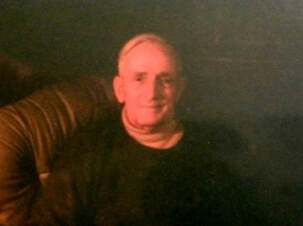
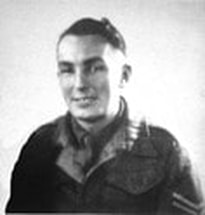
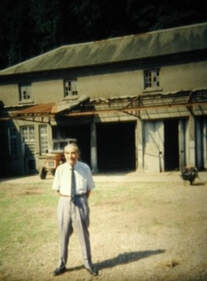
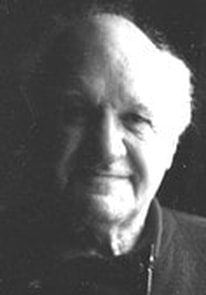
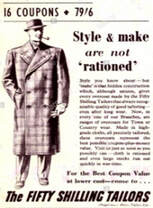
 RSS Feed
RSS Feed
